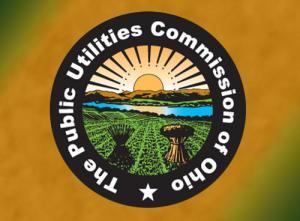Ohio Court Remands Renewable Energy Credit Refund Order from 2013

Finding that the underlying action was tantamount to unlawful retroactive rate making, the Ohio Supreme Court has sent back to the Ohio Public Utilities Commission a 2013 decision in which the commission had required FirstEnergy Corporation’s Ohio affiliates to return to their customers more than $43 million for what the commission deemed to be excessively priced purchases of renewable energy credits (RECs) dating back to 2010. In its decision, the commission said that an audit had revealed that some of the utilities’ REC purchases had not been prudent and therefore must be disallowed. In fact, the commission said, First- Energy’s REC costs for Ohio were among the highest in the country. Consequently, the commission directed the three FirstEnergy subsidiaries — Ohio Edison Company, Cleveland Electric Illuminating Company, and Toledo Edison Company — to refund ratepayers for the overcharges, which the commission ruled could be accomplished via a billing credit. The commission estimated that the credit would come to about $5 a month for the average residential customer.
FirstEnergy, however, balked at the refund requirement, emphasizing that the REC obligations had been incurred at a time when a new state law mandated that a growing proportion of utility generation portfolios be filled by renewable energy. The companies pointed out that because they owned no wind- or solar-powered facilities in Ohio at the time, the state legislature had explicitly authorized the utilities to purchase RECs as a means of satisfying the renewable energy standards. And, FirstEnergy argued, the enabling statute made no provision for refunds of any REC costs.
The commission refuted that it was without jurisdiction to order refunds for overpriced RECs. According to the commission, the law permitted FirstEnergy to recover only prudently incurred REC costs, with the commission being the appropriate party to determine prudence and reasonableness.
The commission also highlighted the fact that the FirstEnergy companies had engaged in a protracted proceeding before the commission when establishing the REC program in the first place, which proceeding yielded a three-year rate plan for the utilities. The commission reported that the rate agreement contemplated reduced charges should it be found that the companies’ REC purchases were not prudent.
Upon examining the party positions in the appeal before it, the state high court deemed FirstEnergy’s arguments to be the more persuasive. The court said that its review of the state law establishing the renewable energy and REC requirements showed that the statute simply did not set forth any associated refund protocol. Therefore, the court held, regardless of what the commission thought First-Energy had agreed to in the threeyear rate plan instituted in 2009, there was no lawful basis for REC refunds thereto, even if the record indicated that the purchase price for such had been patently unreasonable.
To that end, the court conceded that the commission had made a convincing case that the REC costs claimed by the companies far surpassed those incurred by other utilities around the nation. The court also acknowledged that certain consumer advocacy groups that supported the commission’s refund efforts had floated the theory that the companies’ REC costs were disproportionately high at least in part because some RECs had been procured through FirstEnergy affiliates. As explained by the court, those parties contended that the FirstEnergy utilities had engaged in self-dealing with FirstEnergy affiliates that had a definitive profit motive.
In the end, however, the court found that such suspicions did not really affect the commission’s ability or inability to order refunds of the excessive REC costs. The court stated that because Ohio’s renewable energy law did not explicitly address refunds for imprudently purchased RECs, the long-standing rule against retroactive rate making came into play. Thus, the court said, relief from high REC charges could be obtained only on a prospective basis.
Admitting that the result might seem unfair, the court stressed that it was the existing statutory scheme that drove the outcome. The court expounded that it was up to the state legislature to craft a remedy and amend the law to provide for refunds in order to prevent FirstEnergy or other utilities from benefitting from such “windfalls” in the future.
There was one issue on which the court sided with the advocacy groups and against FirstEnergy, however, that being the commission’s grant of the utilities’ request for confidential treatment of their REC procurement processes and procedures. The court told the commission that it saw no justification for the commission agreeing to keep secret some of the bidding participants as well as the metrics used by FirstEnergy in evaluating proposals and selecting the winners.
The court instructed the commission to review that part of its earlier decision and either make the subject information public or provide a more detailed description of the reasoning behind its directive sealing the record on that topic. Re Alternative Energy Rider Contained in the Tariffs of Ohio Edison Co., Cleveland Electric Illuminating Co., and Toledo Edison Co., No. 2013-2026, Slip Opinion No. 2018- Ohio-229, Jan. 24, 2018 (Ohio).



